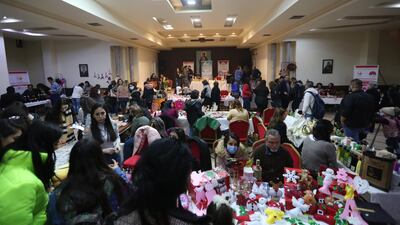Andre Rieu is a 71-year-old Dutch violinist and conductor who created a space for classical music for the masses in an industry marked by shrinking demand, rising cost and financial losses. Rieu's albums have for the past two decades sold more than 40 million copies – versus an average 10,000 copies for more traditional top classical music CDs.
As the Covid-19 pandemic continues to evolve, managers around the world are wondering whether approaches that were successful in the past will still apply to changed business realities. They can learn a lot from Rieu.
Instead of letting existing industry conditions shape his strategy, Rieu reshaped them. He brought in elements such as special lighting, balloons and dove launches, fireworks and even figure skating, thereby creating a new market space and building a multimillion-dollar business with a mass following in the midst of, what we call, a red ocean – a market with existing competition.
In the aftermath of the pandemic, many changes will occur – supply chain restructuring, altered customer preferences, changed government regulations, etc. But one fundamental reality will endure and intensify: companies will face heightened competition. And so, more than ever, firms need to create new demand in order to generate profit and growth.
Rieu's perspective can guide us in a world of mounting challenges. Most organisations are stuck in the trap of competition. Having accepted their industry structure as a given, executives benchmark rivals and focus on outperforming them.
The irony is that the more you focus on outpacing the competition, the more your strategy will look like your competitors.
On the other hand, a blue ocean strategist, instead of imitating competition, focuses on how to make the competition irrelevant. This is the crux of what managers today need to draw inspiration from.
Rieu didn’t imitate other orchestras by holding concerts in expensive venues and hiring world-class soloists and conductors, nor did he adopt a complex and elitist musical repertoire.
Instead, his concerts were held in stadiums and city squares, playing music that was most familiar to average listeners and performing only the bits of classical pieces that speak to the heart, his musicians often dancing, swaying and clapping along with the audience.
He defied industry best practices of conventional orchestras. In doing so, Rieu appealed to a much broader audience who wanted to enjoy the music they loved.
The pandemic, by changing people’s working habits and lifestyles, has put many products and services to similar test.
The idea for businesses should be to create an offering so compelling that anyone who sees or tries it can’t help but rave about it.
Stop looking at competition and start looking at what an audience or buyers really value.
Customer satisfaction and understanding customer needs are a priority for any organisation. And most of them monitor customer satisfaction scores through surveys, for example.
This can lead to finer segmentation and greater customisation to meet customers’ specialised needs. But by holding on to a pre-determined definition of who their customers are, organisations are often blind to the wider potential of new demand outside their industry.
In many industries, existing customers are just a drop in the bucket, compared with all the non-customers who can be tapped through market-creating strategies.
Consider Rieu again. While other orchestras focused on devoted classical music lovers, Rieu looked at the mass population of music lovers who were either intimidated or turned off by the heaviness and solemnity of conventional classical concerts.
In a time of sluggish and contracting demand in many industries, fighting for a bigger share of existing customers does not often lead to profitable growth. A blue ocean strategist doesn’t choose between pursuing differentiation and low cost.
Rieu lowered costs by eliminating superstar soloist performances, reducing the size of the orchestra and the complexity of the repertoire. He achieved differentiation by playing familiar tunes, encouraging audience participation and creating a visual and festive grandeur.
The result: Rieu and his orchestra stayed on the Billboard Top 25 Tours list for nearly two decades, along with the likes of Bruce Springsteen and Justin Bieber.
Breaking the value-cost trade-off is particularly important in a post-pandemic world where people, faced with economic uncertainties and living on a tighter budget, tend to be more cautious about their spending and yet more conscious of a product or service’s value and appeal.
Only those offerings that are both differentiated and low cost have the best chance to stand out and open up latent demand, thereby helping restore market confidence and contributing to a speedy economic recovery.
W Chan Kim and Renée Mauborgne are professors of strategy at Insead and Co-Directors of the Insead Blue Ocean Strategy Institute













